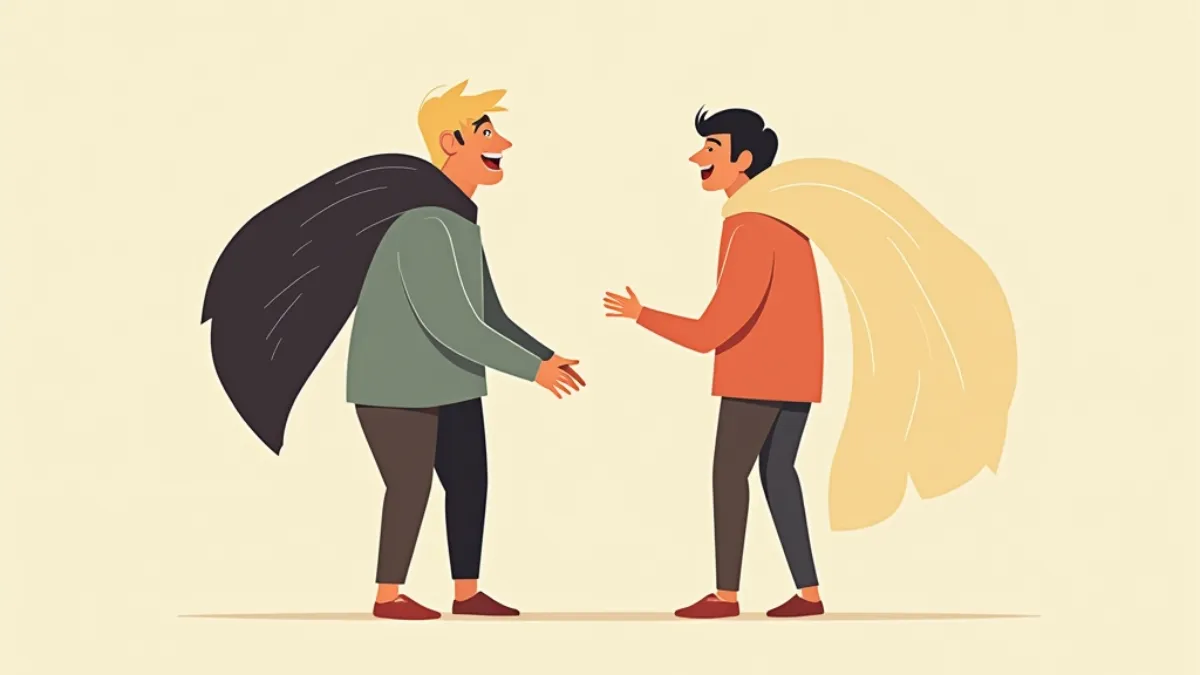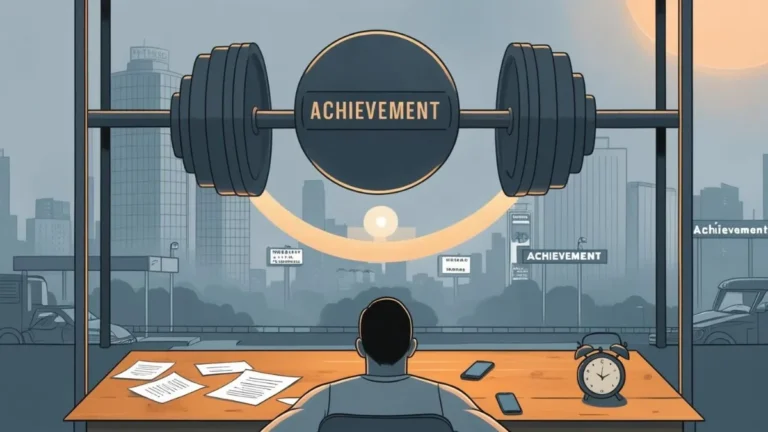You ever come across someone who talks a big game about a subject they clearly don’t understand? Maybe that someone has been…you? We all do it sometimes. Whether it’s in casual conversations about politics or debates on social media, many of us have overestimated our own knowledge more often than we care to admit. Welcome to the Dunning-Kruger Effect, a cognitive bias that explains why the least competent are often the most confident.
What Is the Dunning-Kruger Effect?
The Dunning-Kruger Effect is a psychological phenomenon identified by researchers David Dunning and Justin Kruger back in 1999. In their study, they found that people with limited knowledge or skills in a particular area tend to overestimate their competence. Ironically, those who are more experienced often underestimate themselves because they grasp the complexity of what they do and just how much there is to learn. In short, the less you know, the more you think you know.
The 1999 Study That Started It All
Dunning and Kruger asked participants to take tests in humor, logical reasoning, and grammar, then asked them to rate their performance compared to others. The less skilled individuals thought they had aced it—sometimes placing themselves in the top percentile—while in reality, they scored below average. Meanwhile, the participants who did well tended to underrate themselves, doubting how much better they performed compared to their peers.
So, why does this happen? It comes down to metacognition, which is our ability to think about and evaluate our own thoughts. The irony is that those who are incompetent in a subject lack the metacognitive skills to realize it, and that’s why they mistakenly believe they’re better than they are.
Real-Life Examples of the Dunning-Kruger Effect
The Dunning-Kruger Effect shows up in all sorts of places—from classrooms to boardrooms. Here are some classic examples:
- Driving: Studies have shown that 93% of American drivers think they’re better than average. Yep, you read that right—93%! We can’t all be in the top half, right?
- The Workplace: Ever had a coworker who thinks they’re irreplaceable, even though their skills don’t quite match their confidence? Surveys have shown that more than 40% of employees believe they’re in the top 5% of performers at their company. The numbers just don’t add up, but that’s exactly how the Dunning-Kruger Effect works.
- Social Media: We see it all the time on Twitter, Reddit, and other platforms—people chiming in with strong opinions on topics they know little about. Misinformation spreads because of confidence, not competence.
The Consequences of Overconfidence
The Dunning-Kruger Effect isn’t just an interesting quirk of human psychology—it can have real consequences, especially when it comes to decision-making. Here are a few areas where overconfidence due to this effect can cause harm:
- Spread of Misinformation: People who think they know a lot about a subject are often the loudest voices in a conversation, even when they’re wrong. This can lead to misinformation becoming more widespread—a big problem in today’s world.
- Misjudging Experts: Because overconfident people often speak with authority, it’s easy to mistake them for genuine experts, while those who really know their stuff might appear hesitant. As a result, true expertise can be overshadowed by unjustified self-confidence.
- Poor Decisions: Overestimating your abilities can lead to bad decisions in your personal and professional life. Whether it’s a bad investment, career move, or everyday judgment call, thinking you’re more capable than you are can backfire.
How to Avoid Falling Victim to the Dunning-Kruger Effect
So how do we avoid being blinded by our own ignorance? While there’s no surefire way to avoid it completely (since the whole point is you don’t know when you’re wrong), there are a few steps you can take to lessen its impact:
- Stay Humble: Recognize that there are always things you don’t know. Embrace the fact that you might not be the smartest person in the room, and listen to others.
- Cultivate Metacognitive Skills: Reflect on your own thinking. Ask yourself questions like, “Why do I believe this?” or “Could I be wrong?” This kind of self-reflection can help you better recognize your own limits.
- Seek Honest Feedback: The people around you are often the best mirrors for your competence. Don’t shy away from constructive criticism; it can help you identify areas where you need improvement.
- Embrace Continuous Learning: Always be open to learning more. The more you know, the better you understand the complexities of a subject, which can help prevent overconfidence.
More Real-World Consequences and Examples
To truly understand the impact of the Dunning-Kruger Effect, it helps to look at even more scenarios where it plays a significant role. Here are some additional areas where this cognitive bias is prevalent:
- Health and Medicine: Ever heard of someone self-diagnosing based on a few Google searches? The Dunning-Kruger Effect can be dangerous when people assume they understand medical conditions without proper training. This overconfidence can lead to neglecting professional medical advice or misinterpreting symptoms, resulting in potentially harmful consequences.
- Politics and Public Discourse: Political debates are often rife with individuals who are highly confident but poorly informed. The Dunning-Kruger Effect can lead people to form strong opinions on complex issues without understanding the nuances. This can contribute to polarization and the spread of misinformation, as people may follow confident voices rather than informed ones.
- Hobbies and Skills: This effect even appears in hobbies like cooking, sports, or DIY projects. A beginner cook may think they can easily replicate a complicated dish they saw on TV, only to realize halfway through that they are out of their depth. In sports, novice players might overestimate their abilities, leading to frustration or even injuries.
- Entrepreneurship: Starting a business is another area where overconfidence can be costly. Many aspiring entrepreneurs believe they have what it takes to succeed, but without adequate planning, research, or understanding of the market, they often face challenges that they are not equipped to handle. This overestimation of one’s capabilities can lead to financial losses and failed ventures.
How the Dunning-Kruger Effect Impacts Learning
The Dunning-Kruger Effect also significantly affects learning and education. Students who overestimate their knowledge might not study as hard, assuming they already understand the material. Conversely, those who underestimate themselves may suffer from unnecessary anxiety, even when they are adequately prepared.
To counteract this, educators can play a vital role by providing regular feedback, encouraging self-assessment, and fostering an environment where it’s okay to admit not knowing something. By promoting a growth mindset, teachers can help students better calibrate their self-perception and become more effective learners.
Strategies for Promoting Self-Awareness
If you want to minimize the impact of the Dunning-Kruger Effect in your life, developing self-awareness is key. Here are some strategies that can help:
- Mindfulness Practices: Engaging in mindfulness meditation can help you become more aware of your thoughts and emotions, which can improve your ability to assess your own competence accurately.
- Journaling: Keeping a journal of your thoughts and experiences can help you track your progress in different areas of life. Writing down your goals, actions, and outcomes can provide insight into how well you’re actually doing, rather than relying solely on perception.
- Learning to Say ‘I Don’t Know’: It might seem simple, but admitting when you don’t know something is a powerful tool for combatting the Dunning-Kruger Effect. Being honest about your limitations opens the door to learning and growth.
- Ask More Questions: Instead of making statements, try asking questions. When you encounter a topic, ask yourself what you don’t know about it. This curiosity can help you understand the limits of your knowledge and prompt further learning.
Quotes from Experts on the Dunning-Kruger Effect
Here are some insights from notable experts that shed light on the importance of recognizing this bias:
- David Dunning: “The skills you need to produce a right answer are exactly the skills you need to recognize what a right answer is.” This highlights why those with limited knowledge often don’t realize their errors.
- Justin Kruger: “Ignorance, more frequently begets confidence than does knowledge.” This quote points out how ignorance can create a false sense of certainty, which is at the core of the Dunning-Kruger Effect.
- Socrates: “The only true wisdom is in knowing you know nothing.” Though this is an ancient quote, it perfectly aligns with the Dunning-Kruger Effect. True wisdom comes from acknowledging the limits of your knowledge.
The Dunning-Kruger Effect in Leadership
Leaders are not immune to the Dunning-Kruger Effect, and when it affects those in positions of power, the consequences can be significant. A leader who overestimates their abilities may make poor strategic decisions, ignore valuable input from their team, or fail to adapt to changing circumstances. On the other hand, a leader who underestimates their abilities might hesitate to take necessary action or struggle to inspire confidence in their team.
To combat this, effective leaders should cultivate humility, seek diverse perspectives, and rely on data-driven decision-making. By fostering an environment of open communication, leaders can ensure that all voices are heard, reducing the risk of falling victim to their own blind spots.
Wrapping It Up
The Dunning-Kruger Effect teaches us that confidence doesn’t always equal competence. The less we know about a topic, the more likely we are to overestimate our understanding—and that’s something we should all keep in mind. By staying humble, continuously learning, and seeking honest feedback, we can help combat the biases that hold us back from truly growing.



